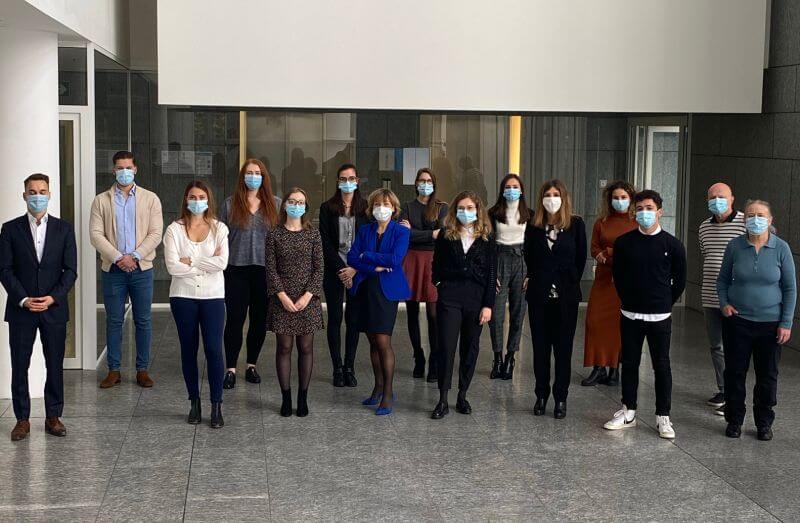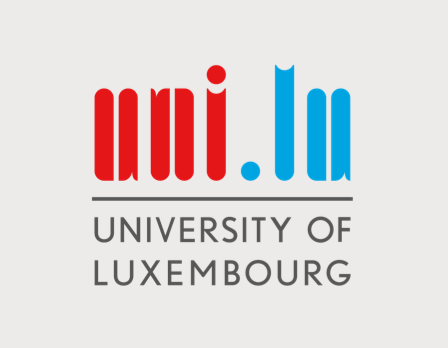Dynamic, engaging, and topical — these are just a few ways to describe what it’s like to pursue a legal education in Luxembourg.
It is the home of the Court of Justice of the European Union, Europe’s financial powerhouse, one of the fastest growing economies in the region, and host to major organisations across a wide variety of developing sectors.
Combined with its proximity to other major cities such as Brussels, Cologne, and Strasbourg, the country’s importance to the European region — and indeed, to the rest of the world — cannot be understated. It is for this exact reason that Luxembourg is perhaps the ideal higher education destination for any ambitious law student.
The Faculty of Law, Economics and Finance (FDEF) at the University of Luxembourg offers a uniquely tailored set of LL.M. programmes. Aimed at students with a Bachelor in Law or equivalent studies, the two-year programme intends to provide learners with a unique traineeship in the European legal landscape. On top of that, it’s ranked #92 worldwide by the Times Higher Education (THE) — a testament of its quality and prestige on the global stage.
Perhaps what is most unique about the programme, though, is its transnational approach to law. Not only will students discover Luxemburgish law, but they will also learn about the interaction between various European and international legal systems as well. It’s a perk distinctive to Luxembourg, thanks to its strategic location in the middle of Europe. Luxembourg shares borders with multiple nations and is a major player in the global business market. The emulation of international companies on this small yet meteoric market creates a unique playground for audacious experts.
Plus, students across the LL.M. programmes are taught in both French and English, reflecting the international and multilingual nature of the university and the field in itself. Above all, this provides students with opportunities to acquire professional language skills.
Through these programmes, students receive a comprehensive education on European law as a whole, after which they are expected to specialise in a number of fields according to their interests. They’re taught in small classes with ample opportunities for practical and personalised teaching from the university’s mix of academics and professionals in the field.
The common First Year (M1) is centred around providing students with a solid basis in European law. Aside from preparing students for Second Year (M2) specialisations, it also encompasses advanced classes on institutional and substantive EU law as well as specialised seminars.
This ultimately ensures that by the time students complete their M1 year, they are able to confidently decide on their area of specialisation in M2. The six highly-specialised LL.M.programmes, taught bilingually in French and English, are:
- Droit et Contentieux de l’UE (covering EU law and its litigation system)
- European Economic and Financial Criminal Law
- Droit Bancaire et Financier Européen (investment funds law)
- European and International Tax Law
- European Private Law
- European Business Law
- Space, Communication and Media Law
Teaching is supplemented by the option to take part in experiential learning opportunities. This includes the Consumer Law Clinic, where students are trained by professors and lawyers in the practice of legal advice. It’s the first clinic of its kind in Europe, that is completely open to the public, meaning that students face real consumers who require assistance or aid. Through this, they gain practical exposure whilst simultaneously servicing the community at large.
It has a “clinicité” aspect too, which serves to teach the general public about their individual legal rights. One such clinicité advised high school students on how to purchase online goods safely.
“The idea was to explain the problems that could arise [out of purchasing through online platforms] and how legal research can help to resolve them,” says Elise Poillot, professor of civil law at the University of Luxembourg.
“What we are trying to do here is to inform them about their rights as consumers as well as about the land of legal research,” adds Damien Negre, a researcher in doctoral studies.
Besides that, students can participate in international moot court competitions, of which the university has achieved great results. Here, students take part in simulated court proceedings where they adopt a fictitious case, draft briefs or memorials, and participate in oral pleadings. This not only serves as an excellent stepping stone into the courtroom but also allows students to develop transferable and social skills, many of which will undeniably assist in their future careers.
Inspiration abounds within and beyond the Faculty of Law, Economics and Finance
There is no shortage of excellence and diversity to inspire FDEF students. The University of Luxembourg is ranked third worldwide for its international outlook. Its three campuses are home to 6,783 students of 130 different nationalities, creating a truly diverse academic environment.
FDEF offers three bachelor’s, 12 master’s, three professional programmes and two doctoral schools, providing a wide variety of options for students to choose from. The faculty is made up of academic staff from 18 different nationalities, all of whom are supported by practitioners from the field, visiting scholars, and guest professors. Pair this with the faculty’s strong links to many of Europe’s most important institutions, including the Court of Justice of the European Union, and students have front seats to the changes and developments in their respective fields.
This winning formula produces graduates that are knowledgeable, experienced, and above all, employable. From the theoretical to the practical and professional, a legal education here covers them all, ensuring University of Luxembourg students evolve into well-rounded, career-ready experts. To learn more about FDEF’s dynamic law programmes, click here. To apply to the LL.M. programmes, click here.
Follow the Faculty of Law, Economics and Finance on Twitter and Facebook
Follow the University of Luxembourg on Facebook, Twitter, Instagram, LinkedIn, and YouTube













